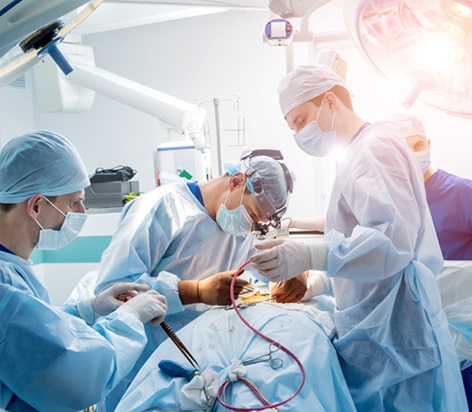
Hernia is a condition characterized by the bulging of the abdominal tissue from the abdominal wall. Surgery is the mainstay for treating hernias. Both laparoscopic and open hernia repair are effective in treating hernia. However, in some cases, the surgeon prefers open repair to laparoscopic hernia repair surgery. Open repair surgery effectively treats all types of hernias, such as groin hernia, ventral hernia, flank hernia, and incisional hernia.